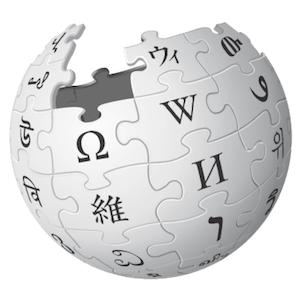Today, the Financial Times announced that Jimmy Wales, the founder of Wikipedia, is raising money to launch a new media outlet, called Wikitribune. According to the article, readers will pay a voluntary monthly subscription fee to fund journalists who will write stories with help from community members. The goal is to fight back against fake news.
Any effort to fight fake news is noble and should be applauded. But, if Mr. Wales believes his new venture will be the solution to fake news, it will fall short for at least four reasons.
First, "fake news" will never be eliminated because pure objectivity is impossible. Imagine trying to answer this question objectively: Is the economy doing well?
That's a deceptively simple question. How does one answer it? Should we use the unemployment rate? Stock market indices? GDP growth? Median income? The percentage of people in the middle class? The percentage of people living below the poverty line? The minimum wage? The way one person defines economic success may not be the same as how another person defines it. The reason isn't a disagreement over objective facts but rather differences in our values, priorities, and interpretations. Nothing can solve that fundamental problem.
Second, there isn't a single reputable (or even not-so-reputable) media outlet that claims to publish fake news. Quite the opposite, in fact. From the New York Times and Washington Post to Fox News and MSNBC, every media outlet believes itself to be the solution to fake news. CNN, after all, is the "most trusted name in news." In other words, every media outlet thinks it is the best source of objective facts, and every other outlet is inferior. Wikitribune will just be one more voice in the large cesspool that is global journalism.
Third, Mr. Wales's news gathering strategy is dubious. He told the FT:
"This will be the first time that professional journalists and citizen journalists will work side-by-side as equals writing stories as they happen, editing them live as they develop and at all times backed by a community checking and re-checking all facts."
"Community checking and re-checking" is the philosophy behind Wikipedia, as well, but it has had decidedly mixed results. While science articles tend to be quite accurate, political ones are often incredibly biased. Edit wars between ideologically driven Wikipedia users are common. Worse, Wikipedia is anonymous, so there is nobody to hold accountable for the (in)accuracy of the content.
Finally, Mr. Wales's fundraising strategy sounds far-fetched. If traditional newspapers find it difficult to get readers to pay for content, it is hard to believe that Mr. Wales will be able to overcome the problem.
Despite these reservations, it will be interesting to watch how Wikitribune operates and evolves over the years. Hopefully, it will have a positive impact on the dissemination of accurate information. The world certainly needs it.




